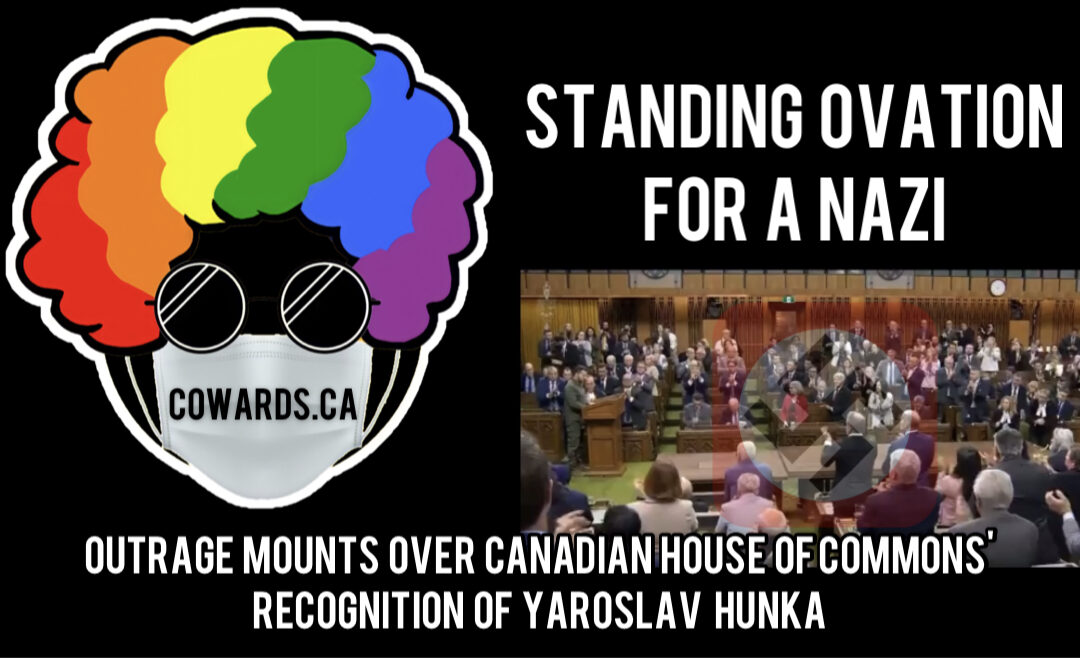Listen
Canadian House of Commons recently witnessed an act so disturbing that it defies comprehension. Members of the House rose to their feet in a unanimous standing ovation for a man whose past is not just tainted but steeped in the darkest of shadows. Yaroslav Hunka, at the age of 98, was celebrated as a hero, a label that rings hollow in the face of his undeniable associations with one of history's most repugnant ideologies. This recognition is not only troubling; it is profoundly pathetic, disrespectful, and disgusting.
A Troubling Past Unveiled
Yaroslav Hunka, a Ukrainian-Canadian, finds himself at the center of this controversy due to his wartime involvement with the 14th division of the Waffen SS, an organization that symbolizes the epitome of human cruelty and suffering. Hunka's affiliations with the Waffen SS are not mere historical footnotes; they represent a dark chapter in his life that stains any claims of heroism. It is not merely an uncomfortable truth; it is a repugnant reality that cannot and should not be ignored.
The Recognition that Defies Morality
The heart of the controversy lies squarely within the Canadian House of Commons itself. Lawmakers, the very guardians of the nation's values and principles, inexplicably chose to bestow an honor upon Hunka that is not just deeply problematic, but morally indefensible. The standing ovation for Hunka reflects a stunning lack of moral clarity among parliamentarians. It is not a matter of divergent perspectives but a collective failure of moral courage. The uniformity of this support in the face of such a controversial figure is nothing short of a national disgrace.
Divergent Perspectives, But Disgusting All the Same
While some may argue that Hunka should be celebrated for his wartime service, the facts surrounding his involvement with the Waffen SS are not open to interpretation. Advocates for recognition may conveniently sidestep the atrocities committed by the organization, but the repulsion it evokes remains undeniably clear. Any attempt to downplay the horrors of the Waffen SS is not just misguided; it is morally bankrupt.
The Absence of Dissent: A Collective Shame
The absence of opposing voices during the standing ovation is not merely a matter of political conformity; it is a collective shame that stains the annals of Canadian history. It raises profound concerns about the courage and moral fiber of those who occupy positions of power. The reluctance to challenge the recognition of someone with such a troubling past should serve as a stark reminder that political expediency should never eclipse the demands of morality.
Society's Challenge: Confronting Disgust and Demanding Accountability
This controversy forces Canadian society to confront not only uncomfortable questions but also a rising tide of disgust. How does a nation reckon with an event so disgusting that it defies description? The fundamental dilemma remains: should wartime service be celebrated regardless of the affiliations and actions of those involved? Accountability, in this context, demands more than just acknowledgment; it requires resolute action to prevent such disturbing events from happening again.
Conclusion: A Disgusting Act Requiring Accountability
The recognition of Yaroslav Hunka in the Canadian House of Commons is not just a controversy; it is a national disgrace that stains the very soul of the nation. The debate surrounding Hunka underscores the urgent need for accountability when acknowledging historical figures. While some may argue for heroism, the events of that day cannot be obscured by empty platitudes. Disgust is a legitimate response, and it serves as a call to action. It is a call for accountability and a demand for a society that holds itself to the highest moral standards. The events in the House of Commons are a stark reminder that accountability is not just a matter of historical reflection but also a reflection of our values and our commitment to truth and justice in the present day.


Recent Comments